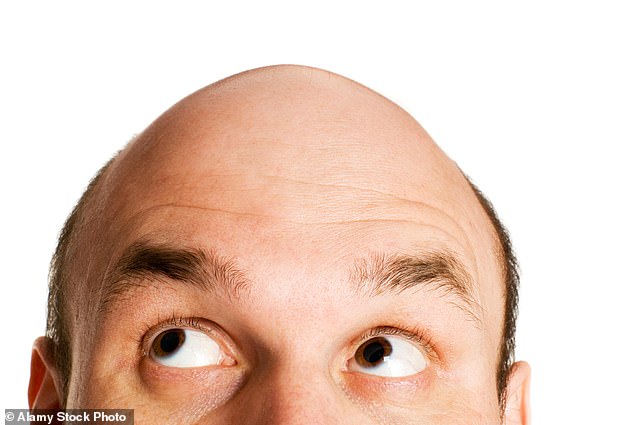Following a diet plan loved by celebrities could increase your chances of going bald, a new study suggests.
From the Kardashians to former Prime Minister Rishi Sunak, intermittent fasting has become a popular weight loss strategy among high-profile figures, but scientists have discovered that the diet can destroy hair follicles.
Researchers at Westlake University, Zhejiang, China, suggested that this probably has to do with the fact that the diet deprives cells of the energy they need to stimulate healthy hair growth.
Speaking of the findings, which were made in mice, lead author and stem cell biologist Bing Zhang of Westlake University in Zhejiang, China, said: “We don’t want to scare people away from practicing intermittent fasting.
“It’s important to be aware that it could have some unwanted effects.”
The diet involves going for long periods of time without any food, or eating very small amounts, usually in the morning.
It was popularized by the late healthy eating guru Michael Mosely, who invented the 5:2 diet, which involves limiting calories to between 500 and 600 for two days a week.
Proponents credit the eating plan with a host of health benefits beyond weight loss, including reducing the risk of dementia.
In a small human study, hair growth slowed by 18 percent with intermittent fasting.
For the new experiment, the mice were shaved and then fed every 8, 16 or 48 hours, compared to a control group that had unlimited access to food.
While control mice that had unlimited access to food had most of their hair regrown after 30 days, mice on both intermittent fasting regimens showed only partial hair regrowth after 96 days.
Experts said this may be because hair cells require regular “activation” that is fueled by dietary energy.
But intermittent fasting limits energy intake and kills hair cells.
By not eating regularly, the body can use fat stores instead of its preferred energy source, glucose, which can trigger the release of chemicals that damage hair cells, according to the researchers behind the study.
Other studies have echoed these findings.
A small human trial involved subjecting 49 young adults to an 18-hour fast.
The scientists found that a time-limited diet reduced the average speed of hair growth by 18 percent compared to controls, over a ten-day period.
‘We see a milder effect in humans. So, there is still hair growing back; “It’s a little slower than usual,” says Zhang.
The researchers concluded that this may be because humans are very different from each other in terms of genetic makeup, so there can be a wide range of outcomes, with some suffering to a greater extent as a result of diet.
This comes after a study published earlier this year by Chinese researchers found that the fad diet could double the risk of dying from heart problems.
The research, which involved 20,000 adults, found that those who only eat for eight hours a day have almost double the risk of suffering a heart attack and stroke in the future.
The Chinese researchers plan to take advantage of their findings to see if they translate to humans or other cells.
“We also want to find out how fasting affects the healing of skin wounds,” they added.

